Paul Ladame
Otto Rahn y la Búsqueda Nazi por el Secreto de los Cátaros
La Berlin de entreguerras era una ciudad conocida en toda Europa por su sub-cultura bohemia y sus jovenes intelectuales. Entre los personajes que ardientemente celebraban los abundantes «ismos» que estaban fracturando las viejas certezas ideologicas, las cuales habian compactado el siglo XIX, pocos individuos eran mas coloridos que un joven de ojos verdes y cabellos oscuros llamado Otto Rahn. Su figura delgada, envuelta en un caracteristico abrigo negro y sombrero tiroles, arrojaba una larga sombra desde esos anos sombrios, una «gran silueta» alrededor de la cual se han acumulado los mitos mas extravagantes. El fue considerado igualmente como mason, rosacruz, luciferino, y un agente de la Sociedad Thule. Como lo plantea el autor Phillip Kerr, los contemporaneos de Rahn no se habrian sorprendido de ver «la Dama Escarlata y la Gran Bestia salir volando desde la puerta del frente» de su apartamento en Tiergartenstrasse. Uno de sus companeros de la Orden Negra de Heinrich Himmler comento en un memorandum interno que el «medio sospechaba que Rahn tenia relaciones con el pueblo pequeno».
В поисках утраченного Грааля
Берлин между мировыми войнами был городом, известным по всей Европе своей богемной субкультурой молодых интеллектуалов. Среди лиц, которые горячо обсуждали много модернистских "измов", которые ломали старые идеологические определения, что склеивали 19-ое столетие, немногие были более колоритными, чем этот темноволосый, зеленоглазый молодой человек по имени Отто Вильгельм Ран. Его худая фигура, одетая в характерный черный плащ и фетровую шляпу, бросает длинную тень из тех сумеречных лет, ‘великий силуэт’, вокруг которого вращались самые невероятные мифы. Он, как говорили, был Масоном, Розенкрейцером, Люциферианцем, посланцем Общества Туле, посвященным Катаром и даже руководителем некоего неизвестного международного тайного общества.
Lachrymae, Chapter IV: The Final Chapter
An Online Journal by Richard Stanley<
(Originally appeared in R. S.' MySpace<, December 9th, 2007.)
Brethren, I have invited you here to this ancient, invisible theatre with the intention of not only unmasking the killer God responsible for these crimes against 'reality', but more cogently, to provide an unambiguous solution to two or perhaps three long running esoteric enigmas!
I salute those who have stayed with the program from the top. For late joiners I include an index to conjure order out of the scrolling chaos and serve as an aid memoir for those hardy few who dare read further. I have very little keyboard time at present and less in the months to come. Until we meet again this strange saga is my gift to you.
Be warned the completed text contains 'spoilers' and may be hazardous to your belief systems.
Otto Rahn: author, poet, Grail seeker, SS officer
In February 2007, Montserrat Rico Góngora published “The Desecrated Abbey”, in which he claimed that Heinrich Himmler, Hitler’s second-in-command and head of the Nazi SS, had made a secret wartime mission to an abbey in Spain, in search of the Holy Grail. Góngora even interviewed Andreu Ripol Noble, a former monk and the only person that spoke German, who was ordered by his superiors to guide Himmler during the visit in 1940. Ripol related that Himmler came to Montserrat inspired by Richard Wagner’s opera “Parsifal”, which mentions that the Holy Grail could be kept in “the marvellous castle of Montsalvat in the Pyrenees” – the mountain range that marks the border between France and Spain.
Otto Rahn im Wikipedia
Otto Wilhelm Rahn (* 18. Februar 1904 in Michelstadt im Odenwald; † 13./14. März 1939 bei Söll (Tirol), Österreich) war ein deutscher Schriftsteller, Mediävist und Ariosoph,[1] der sich mit dem Gralsmythos beschäftigte.
Leben
Schule und Studium
Rahn wurde 1904 in Michelstadt/Odenwald als erstes Kind des Justizamtmanns Karl und Clara Rahn (geb. Hamburger) geboren. Ab 1910 besuchte er das humanistische Gymnasium erst in Bingen, wo er bis zum Beginn des Ersten Weltkriegs lebte. Sein Abitur machte er in Gießen. Dort begeisterte ihn sein Religionslehrer Freiherr von Gall erstmals für die Geschichte der Katharer. 1922 begann Rahn ein Jurastudium in Gießen, das er an der Albert-Ludwigs-Universität Freiburg und der Universität Heidelberg fortsetzte. 1925 bis 1928 unterbrach er sein Jurastudium und betätigte sich als Handelsreisender für verschiedene Verlage.
A review of Otto Rahn’s study of Grail lore by John J. Reilly
Anyone who undertakes the study of the intellectual underpinnings of Nazi Germany (1933-1945) will soon notice that at least some members of the regime were doing things that are not covered by the typical survey course in political theory. Researchers who attempt to investigate these anomalies will dig through a swamp of popular and crank literature about the Third Reich’s connection to the occult underground, some of it coincident with conspiracy theory and some of it (often the most coherent works) purely fictional. Nonetheless, a sober study of primary sources will reveal that not all the fantastic rumors were made up out of whole cloth.
English translator's foreword to Crusade Against the Grail
WHEN URBAN VERLAG IN FREIBURG published the first edition of Crusade Against the Grail [Kreuzzug gegen den Gral] in 1933, the book was not an immediate bestseller. But its eloquence deeply moved those who read it. One so moved was Albert H. Rausch, the 1933 Georg Biichner prizewinner who published under the pseudonym Henry Benrath. Rausch wrote an introduction for the book called Kreuz und Gral [Cross and Grail], which eventually appeared in the Baseler Nachrichten later in the year.
Otto Rahn Biography
CHRONOLOGY 1904-1939
18 Feb 1904 Otto Rahn born, Michelstadt. Parents Karl & Clara (nee Hamburger)
1910-1916 Junior school at Bigen
1916-21 Secondary school at GrieBen
1922 obtains Baccalaureat
1924 obtains Bachelor in Philology and History
1930 Rahn begins his European travels (Paris, Provence, Switzerland,
Catalonia, Italy)
1931 Rahn visits French Pyrenees. Visits "Spion" in Pyrenees with Himmler and Abetz
1932 Rahn leads a Polaires expedition in Pyrenees
13.12.33 Rahn joins the German Writers Association
1934 publishes "Kreuzzug gegen Gral" (Crusade against the Grail)
1935 appointed to personal staff of Heinrich Himmler
29.2.36 Rahn joins Allgemeine-SS, member 276 208
1936 Rahn visits Iceland with 20 men
1937 publishes "Luzifers Hofgesind. Eine Reise zu denguten Gelstern Europa" (Lucifer's Court in Europe; Rahn sent back to Languedoc (Montsegur), says he will return in 1939. Time of alleged Corbieres visit?
20.4.37 promoted to sub-lieutenant (Untersturmfuhrer)
Sep-Dec1937 military service for "disciplinary reasons" at Oberbayern Regiment, Dachau<
Raiders of the Lost Grail
Berlin between the wars was a city known throughout Europe for its bohemian subculture of young intellectuals. Amongst the personalities who hotly debated the many modernist “isms” that were fracturing the old ideological certainties which had glued together the 19th century, few individuals were more colourful than a dark-haired, green-eyed young man named Otto Wilhelm Rahn. His gaunt figure, swathed in characteristic black coat and fedora, casts a long shadow out of those twilight years, a ‘great silhouette’ around which the most extravagant myths accrued. He was variously said to be a Mason, a Rosicrucian, a Luciferian, an agent of the Thule Gesellschaft, an initiated Cathar and even the leader of an obscure, international secret society. As author Philip Kerr puts it, Rahn’s contemporaries might not have been surprised to see “the Scarlet Woman and the Great Beast come flying out of the front door” of his apartment on Tiergartenstrasse. One of his Nazi peers in Heinrich Himmler’s Black Order remarked in an internal memo that he “half suspected Rahn of being in league with the little people”. To this day, it is widely believed that this enigmatic young man knew the whereabouts of one of the most sacred relics in all Christendom – the Most High Holy Grail. But the truth is stranger still…

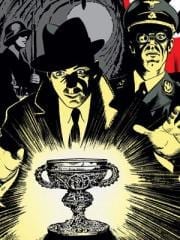


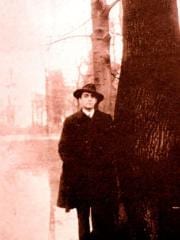

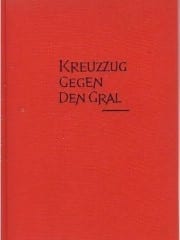
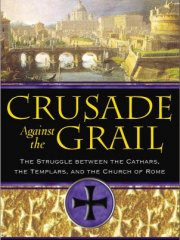
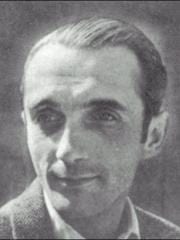
Neueste Kommentare
vor 13 Jahre 50 Wochen
vor 13 Jahre 50 Wochen
vor 13 Jahre 50 Wochen
vor 13 Jahre 51 Wochen
vor 14 Jahre 2 Wochen
vor 14 Jahre 7 Wochen